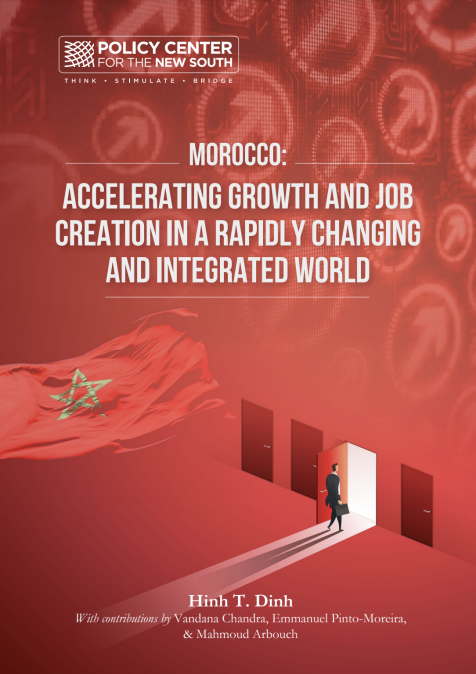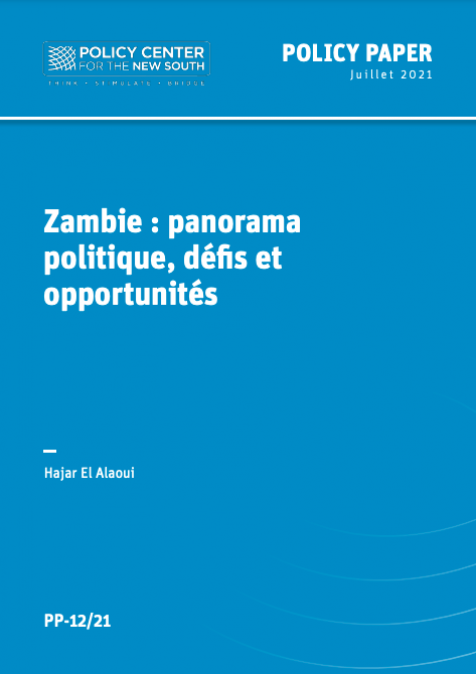RELATED CONTENT
-
 AuthorsJuly 28, 2021Elon Musk, owner of the electric car company Tesla, declared in February that his company would accept the digital currency Bitcoin, as a payment method. The news lifted the shares of the carmaker by around 20%. Three months later, Musk reversed his decision, sold 10% of his Bitcoin holdings and raked in the modest sum of $100 million. Economist and Senior Fellow at the Policy Center for the New South Henri-Louis Vedie noted in his Policy Brief, Bitcoin, a Speculative Virtual C ...
AuthorsJuly 28, 2021Elon Musk, owner of the electric car company Tesla, declared in February that his company would accept the digital currency Bitcoin, as a payment method. The news lifted the shares of the carmaker by around 20%. Three months later, Musk reversed his decision, sold 10% of his Bitcoin holdings and raked in the modest sum of $100 million. Economist and Senior Fellow at the Policy Center for the New South Henri-Louis Vedie noted in his Policy Brief, Bitcoin, a Speculative Virtual C ... -
AuthorsChami AbdelilahDerj AtarHammi IbtissemMorazzo MarianoNaciri Yassinewith the technical support of AFRYJuly 23, 2021La décarbonisation est un processus à long terme qui nécessite des investissements importants. Ainsi, des mesures financières et non financières spécifiques devront être mises en œuvre, à la fois à court et à long termes, pour faciliter cette transition. Dans la deuxième partie de la série de Policy Briefs sur la trajectoire de décarbonisation du Maroc, une mise à jour des scénarios de décarbonisation a été présentée. Elle révèle que les scénarios « Ambition accélérée » et « Dévelop ...
-
AuthorsChami AbdelilahDerj AtarHammi IbtissemMorazzo MarianoNaciri Yassinewith the technical support of AFRYJuly 19, 2021Morocco's significant renewable energy resources offer an unprecedented opportunity to anchor the country’s economic and political choices in the energy transition, and to turn the transition into an essential lever for economic development. This is all the more relevant as the costs of renewable energies have dropped over the past 10 years2, and now offer strong potential, not only for creating green jobs but for ensuring a dynamic and resilient economic growth as well. In 2020, ne ...
-
 AuthorsJuly 16, 2021The BDA Currents: Where Diplomacy Meets Business, is the Brussels Diplomatic Academy’s annual report covering the wider geopolitical and other factors influencing and affecting the world of diplomacy, international relations and global business. The journal focuses on issues of topical interest around the centers of global power, influence and importance, including the continents of Europe and Africa, the Middle East, China, India & Asia, Russia and the Commonwealth of Independe ...
AuthorsJuly 16, 2021The BDA Currents: Where Diplomacy Meets Business, is the Brussels Diplomatic Academy’s annual report covering the wider geopolitical and other factors influencing and affecting the world of diplomacy, international relations and global business. The journal focuses on issues of topical interest around the centers of global power, influence and importance, including the continents of Europe and Africa, the Middle East, China, India & Asia, Russia and the Commonwealth of Independe ... -
AuthorsJuly 14, 2021This book aims to address job creation in Morocco in the context of a new export-driven growth model. Prior to the COVID-19 pandemic, the unemployment situation in Morocco was serious, particularly among young people. Morocco’s competitive edge in the global market had been eroding, especially in labor-intensive, low-wage industries that typically create large numbers of jobs. The COVID-19 pandemic has created further setbacks to the economy in 2020 and beyond, including a collapse ...
-
July 14, 2021Otaviano Canuto, Policy Center for the New South Empirical evidence shows that gender inequality, including from legal gender-related restrictions, leads to the loss of growth opportunities, particularly in countries at earlier stages of development. The adverse effect of legal barriers...
-
AuthorsJuly 12, 2021Frappée de plein fouet par la crise sanitaire de la Covid-19, la République de Zambie, déjà fragilisée, fait face à de nombreux défis sur les plans politique, économique, social et climatique. Outre sa position géographique de pays enclavé, le croissant de l’Afrique australe se positionne comme l’une des premières victimes du réchauffement climatique sur le continent rendant vulnérable une partie de sa population souffrant d’insécurité alimentaire accrue. Par ailleurs, et à l’approc ...
-
AuthorsChami AbdelilahDerj AtarHammi IbtissemMorazzo MarianoNaciri Yassinewith the technical support of AFRYJuly 9, 2021Les conséquences du changement climatique sont de plus en plus visibles au Maroc. Le schéma changeant des précipitations et de la sécheresse, l'augmentation des températures moyennes et des canicules, les inondations et l'augmentation du niveau de la mer affectent de plus en plus de nombreuses régions. Et pourtant, le taux d'émission de gaz à effet de serre (GES) du Maroc est relativement faible, comparé à celui d'autres pays. En 20162, les émissions totales de GES du Maroc ont atte ...
-
AuthorsChami AbdelilahDerj AtarHammi IbtissemMorazzo MarianoNaciri Yassinewith the technical support of AFRYJuly 9, 2021The consequences of climate change are becoming progressively more visible in Morocco. Changes in rainfall patterns and drought, increases in average temperatures and heatwaves, flooding, and rising sea levels are increasingly affecting several regions. Yet, Morocco has a relatively low greenhouse gas (GHG) emission rate, compared to other countries. In 20162, Morocco’s total GHG emissions reached 86127.7 gigagram of carbon dioxide equivalent (Gg CO2-eq), totaling around 0.2% of glo ...
-
AuthorsChami AbdelilahDerj AtarHammi IbtissemMorazzo MarianoNaciri Yassinewith the technical support of AFRYJuly 9, 2021Les importantes ressources en énergies renouvelables du Maroc offrent une opportunité sans précédent d’ancrer les choix économiques et politiques du pays dans la transition énergétique, et de faire de cette transition un levier essentiel du développement économique. Ceci est d’autant plus important que le coût des énergies renouvelables a baissé au cours des 10 dernières années2 et présente désormais un fort potentiel, non seulement de création d’emplois verts mais aussi de croissan ...









